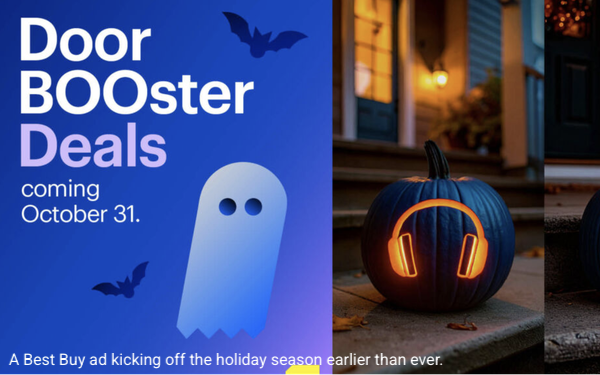forecasts
Pessimistic Consumers Keep Spending, Forecast to Surpass $1 Trillion
- by Sarah Mahoney , Yesterday

The National Retail Federation expects Americans to cross a milestone this season, with holiday sales topping $1 trillion for the first time.
In the new forecast, the trade association projects that November to December sales will rise between 3.7% and 4.2% from last year, reaching $1.01 trillion to $1.02 trillion. Executives underscored the outsized role of shoppers in the broader economy, noting consumer spending now accounts for about 68% of GDP — the highest share in roughly 15 years.
Even so, the outlook comes with caveats. NRF said retailers plan to hire 265,000 to 365,000 seasonal workers, down sharply from 442,000 last year — a sign of a cooler labor market. And with a federal government shutdown limiting fresh economic data, key forecasters have acknowledged they’re driving in a fog.
The NRF says it is relying on private gauges and modeling while official data is paused. Tariffs add another layer of uncertainty, with retailers trying to hold the line on prices while consumers grow more deal driven.
In a press call announcing the results, NRF leaders repeatedly emphasized the disconnect between dour attitudes and sturdy spending. “We are bullish about the holiday shopping season,” said president and CEO Matthew Shay, adding that consumers “plan for it, they prioritize it.” He called this year’s spending strength “somewhat of a surprise” given the backdrop of tariff noise, inflation and sentiment lows.
Purchase sentiments are so low, in fact, that — except for recent inflation-driven downturns — the mood of shoppers hasn’t been this bad since 1980.
Chief economist Mark Mathews described the consumer as “sentimentally weak, but fundamentally sound,” citing real wage gains outpacing inflation for more than two years, still-low unemployment, and balance sheets supported by housing and equities. He flagged stress points — notably rising auto-loan and student-loan delinquencies — but added: “As a whole, delinquency rates and debt service ratios remain manageable, and that allows the consumer to have the disposable income to continue to spend on the things that matter to them.” One persistent pattern, he said, is that shoppers “have shown the willingness to spend on family and loved ones” for gifting events.
Pricing will remain pivotal. Mathews expects a highly promotional season as retailers cater to price-sensitive shoppers, with some costs from tariffs likely offset by savings in other categories. Timing is in flux, too. While early deal events have pulled shopping forward in recent years, NRF’s latest survey shows more consumers planning to buy around Black Friday, reinforcing how deal-led the season has become.
Separate data from Circana drills down on those timing shifts. Its latest survey finds that 44% of consumers plan to start holiday shopping earlier than usual, signaling a return to pre-pandemic habits after last year’s lull. Nearly one in five still intend to make Black Friday their official kickoff, but early promotions are shaping behavior: more shoppers are buying discounted items and fewer are waiting until December. Notes Marshal Cohen, chief retail advisor for Circana, in the report: “Getting an earlier start gives them more control and choice.”

No comments:
Post a Comment